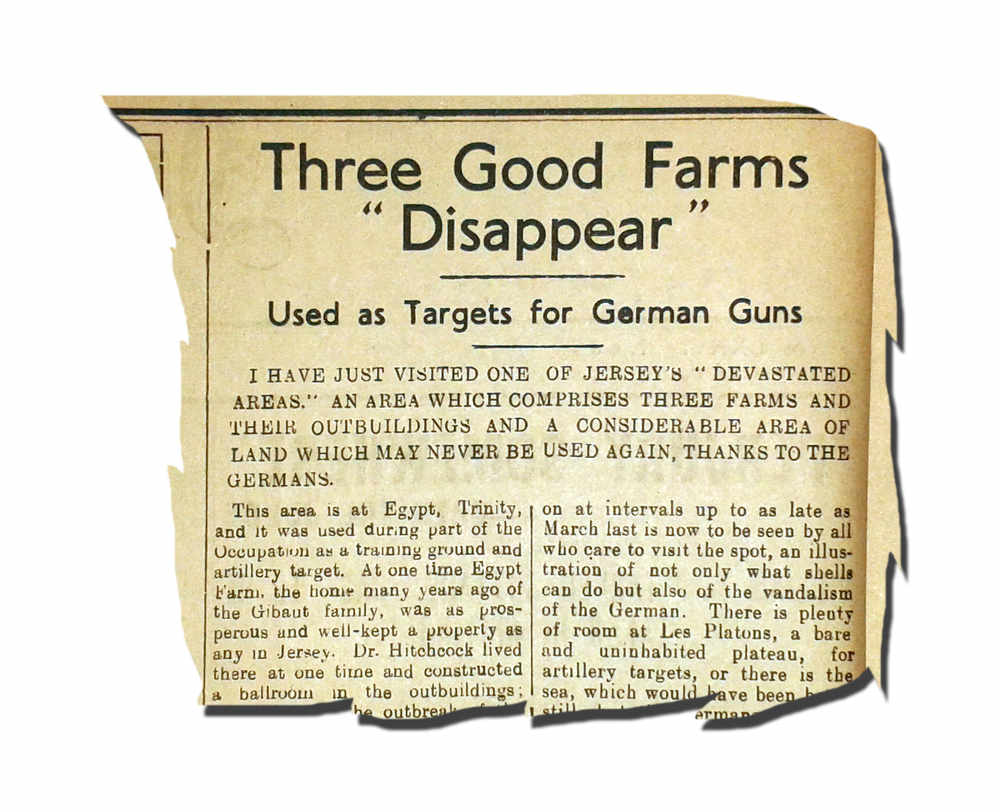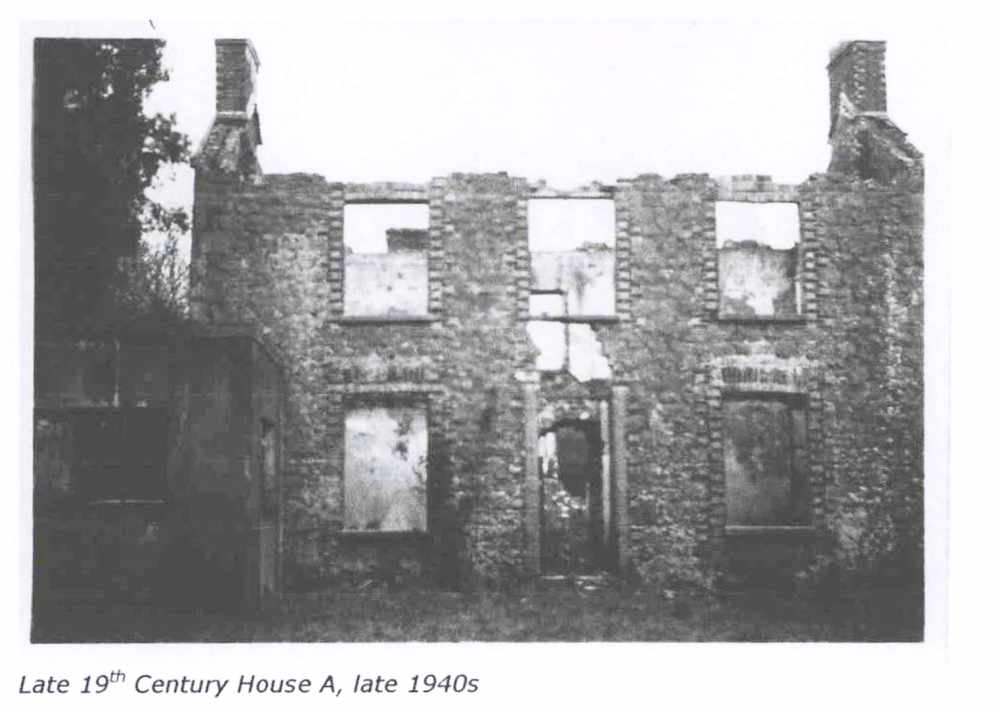In one of the most unusual cases to come before the Planning Applications Committee, members reviewed the Rice family’s plan to recreate their Trinity home.
The family left their Egypt Farm property before the Occupation began, and relocated to South Africa.
Their buildings were taken over by German soldiers and were one of a number of countryside complexes where troops trained in house-to-house combat.

However, the invading forces left the home in a ruinous state after the end of the Second World War, meaning that the Rice’s had no home to return to.
They could not rebuild the property at the time and although £2,000 was offered through a compensation scheme following the Occupation, that sum was only payable when properties were completed – a stage the Rice’s never reached.
Monetary controls introduced in South Africa later prevented the family releasing funds to pursue redevelopment.
Despite approaching the Planning Department in 1984, they have faced years of rejection in attempting to rebuild at the site.
Under the latest plans, which also failed to gain support of the Planning Department, one three-bed home and a garage store would be created at Egypt Farm.
In assessing the scheme Planning said that the ruins had been assimilated into the countryside landscape and that the property had been abandoned.
However, planning and heritage consultant Anthony Gibb told the committee that the farmland associated with the property had not been abandoned as its associated farmland had always been leased. The family have also continued to pay rates on the land for more than 70 years.
Speaking to the JEP after receiving the committee’s approval, Mr Gibb said: ‘The Rice family will be very pleased with the outcome and we look forward to working with the Planning Department on the detail that will enable a permit to be issued.
‘It’s good to see the owners one step closer to rebuilding their farm after so many years.’
Planning officers are now due to talk to the applicant to find a way to ensure that no further building takes place in the area, which is heavily protected under rules applied in the Coastal National Park.
The plans were unanimously supported by all three committee members – chairman Constable Juliette Gallichan and Deputies Scott Wickenden and Graham Truscott.

AFTER Alfred Rice bought one of the farms at Egypt in 1936, the buildings at the site were renovated by Gordon Rice, his son, for use as family homes.
Heritage consultant Antony Gibb’s paperwork included in the Rices’ planning application reveals that the family left for England at the start of the Second World War and that in 1943 their farm was taken over for the training of German soldiers.
Gordon Rice served with the Jersey Militia and joined the 11th Royal Hampshire Regiment during the war. But on returning to the Island, the family found their homes in ruins.
They moved to St Peter and were offered £2,000 in 1949 by way of compensation from the British government – about a seventh of the estimated Egypt rebuilding cost at the time. However, it is not known whether the money was accepted or paid.
Their Egypt homes were left untouched and the Rice family moved to South Africa, where they continued to pay their parish rates on the land, which also continued to be farmed.
Further troubles were to come the Rices’ way when the South African government introduced strict foreign exchange controls, leaving the family unable to export enough money to fund the reconstruction of their Egypt properties after relocating.
During the early 1970s Lower Egypt Farm, which had been rebuilt by the de la Mare family in around 1950, was sold and planning permission was later given to demolish and rebuild a new house on the same site.
The Rice family approached the then Planning Department in 1984, and on a number of occasions since, about rebuilding their ruined homes. But the department has steadily maintained its refusal on developing the site, which now falls within the Coastal National Park, which carries the strongest presumptions against development.






